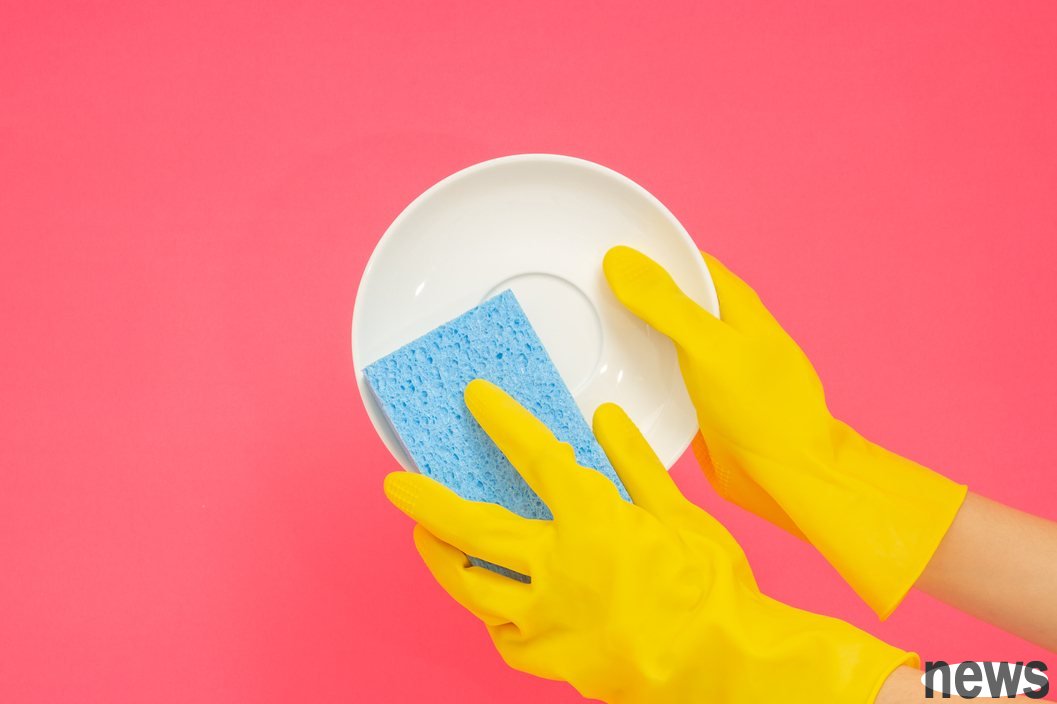Health experts have discovered that the biggest spreader of bacteria may be in the kitchen, which is the dishwashing sea that people use every day. Experts warn that ordinary kitchen sea hoods gather many harmful bacteria, causing diseases and kidne...

Health experts have discovered that the biggest spreader of bacteria may be in the kitchen, which is the dishwashing sea that people use every day. Experts warn that ordinary kitchen sea hoods gather many harmful bacteria, causing diseases and kidney problems. If people want to stay healthy, they should change it frequently.
According to reports from media such as Daily Mail, health expert Dr. Daniel Pompa pointed out that these absorbent sea cubes are covered with tiny "corners and gaps" and are almost impossible to clean; even if they are put into the dishwashers for disinfection, because bacteria stay in the holes and are well "protected".
The US Department of Agriculture (USDA) suggests that people use microwave ovens to heat or boil kitchen sea radishes to reduce bacteria. Daniel doesn't think this will work. He suggests changing the kitchen seabed "every one to two days", but the cost of buying a new seabed will increase rapidly. The health expert recommends that people buy silicone scrub pads.
Danie recently reviewed the scrubbing of silicone cleaners and scrubbing better, and does not retain bacteria. If they are placed in the dishwasher, they will eliminate the remaining bacteria. But it has caused widespread comments, which method is the best to clean the kitchen seaside.
One commenter believes that people do not have to lose the kitchen sea regularly. After washing tableware, just put the sea sea in a bowl or container and add a mixture of water, salt and vinegar to extend the life of the sea sea sea sea sea sea sea sea sea sea sea sea sea sea sea sea sea sea sea sea sea sea sea sea sea sea sea sea sea sea sea sea sea sea sea sea sea sea sea sea sea sea sea sea sea sea sea sea sea sea sea sea sea sea sea sea sea sea sea sea sea sea sea sea sea sea sea sea sea sea sea sea sea sea sea sea sea sea sea sea sea sea sea sea sea sea sea sea sea sea sea sea sea sea sea sea sea sea sea sea sea sea sea sea sea sea sea sea sea sea sea sea sea sea sea sea sea sea sea sea sea sea sea sea sea sea sea sea sea sea sea sea sea sea sea sea sea sea sea sea sea sea sea sea sea sea sea sea sea sea sea sea sea sea sea sea sea sea sea sea sea sea sea sea sea sea sea sea sea sea sea sea sea sea sea sea sea sea sea sea sea sea sea sea sea sea sea sea sea sea sea sea sea sea sea sea sea sea sea sea sea sea sea sea sea sea sea sea sea sea sea sea sea sea sea sea sea sea sea sea sea sea sea sea sea sea sea sea sea sea sea sea sea sea sea sea sea sea sea sea sea sea sea sea sea sea sea sea sea sea sea sea sea sea sea sea sea sea sea sea sea sea sea sea sea sea sea sea sea sea sea sea sea sea sea sea sea sea sea sea sea sea sea sea sea sea sea sea sea sea sea sea sea sea sea sea sea sea sea sea sea sea sea sea sea sea sea sea sea sea sea sea sea sea sea sea sea sea sea sea sea sea sea sea sea sea sea sea sea sea sea sea sea sea sea sea sea sea sea sea sea sea sea sea sea sea sea sea sea sea sea sea sea sea sea sea sea sea sea sea sea sea sea sea sea sea sea sea sea sea sea sea sea sea sea sea sea sea sea sea sea sea sea sea sea sea sea sea sea sea sea sea sea sea sea sea sea sea sea sea sea sea sea sea sea sea sea sea sea sea sea sea sea sea sea sea sea sea sea sea sea sea sea sea sea sea sea sea sea sea sea sea sea sea sea sea sea sea sea sea sea sea sea sea sea sea sea sea sea sea sea sea sea sea Another commenter agreed with Daniel's view, saying that he had always thought that the kitchen was very nasty, so he chose to wash dishes with a brush every day, wash the brush with a dishwasher, and clean it with an antibacterial soap.
In a scientific research in 2017, German researchers discovered that a kitchen seaside contains 54 billion bacterial cells within a square centimeter of area. After analyzing 14 different DNA samples from different seas, the researchers found that they mainly contain a bacteria called Gammaproteobacteria, including many human pathogens, such as bacteria that cause cold, plague, hordeum and food poisoning.
This study also found that due to the porosity and water absorption of the kitchen sea, it has the ability to collect and spread potentially pathogenic bacteria. Researchers believe that there are more microorganisms in kitchens than in bathrooms, and kitchen sea is the largest active bacteria storage warehouse in the home. Researchers also said that kitchen sea slumber is not only a storage warehouse for microorganisms, but also a spreader of bacteria on the countertops of home furnishings, which may cause cross-diseases of hand and food, and is also the main cause of foodborne disease outbreaks.
Responsible editor: Gu Zihuan